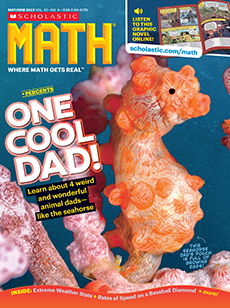The first time Autumn Peltier noticed water safety warnings, she was 8 years old and visiting the Serpent River Nation in Ontario, Canada. It was one of many First Nation communities across Canada without access to clean, safe water. For decades, people in these communities have faced contamination notices and warnings to boil water before drinking or using it to bathe or brush their teeth.
It didn’t make sense to Autumn that First Nation communities didn’t have access to clean water. Canada borders the Great Lakes, a massive source of fresh water, and the Canadian government regulates most of the country’s water supply, ensuring clean and safe water. But it does not regulate the water supply for First Nation communities.
In 2016, Autumn first met Canadian Prime Minister Justin Trudeau when she was 12 years old. During their conversation, she called on him to protect Canada’s water supply. Since then, she’s spoken at the United Nations (U.N.) in New York City twice and participated in environmental summits around the world, declaring that clean water is a human right. “Now is the time to warrior up and empower each other to stand for our planet,” Autumn said in a speech to the U.N. in 2018.
When Autumn Peltier was 8 years old, she visited the Serpent River First Nation in Ontario, Canada. That’s when she first noticed a strange warning posted in public places. It said that the community’s water was polluted. People were advised to boil water before drinking it, bathing in it, or using it to brush their teeth.
First Nations are communities that have lived in Canada since before European settlers arrived. Many haven’t had access to clean, safe water for decades. But that didn’t make sense to Autumn. She knew that Canada borders the Great Lakes, which contain plenty of fresh water to go around.
The Canadian government regulates most of the country’s water supply. Officials monitor pollution levels to make sure drinking water is clean and safe. But First Nations are different. The national government does not regulate their water supply.
Autumn is part of the Wiikwemkoong (week-wehm-koong) First Nation. In 2016, when she was 12, she met with Canadian Prime Minister Justin Trudeau. During their conversation, she called on him to protect Canada’s water supply. Since then, she’s spoken at the United Nations (U.N.) in New York City and participated in environmental summits around the world. Autumn believes that clean water is a human right. “Now is the time to warrior up and empower each other to stand for our planet,” she said in a speech to the U.N. in 2018.
